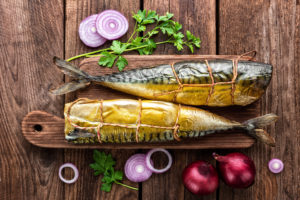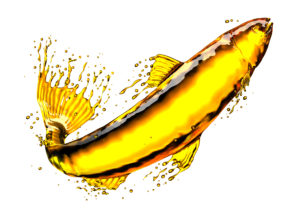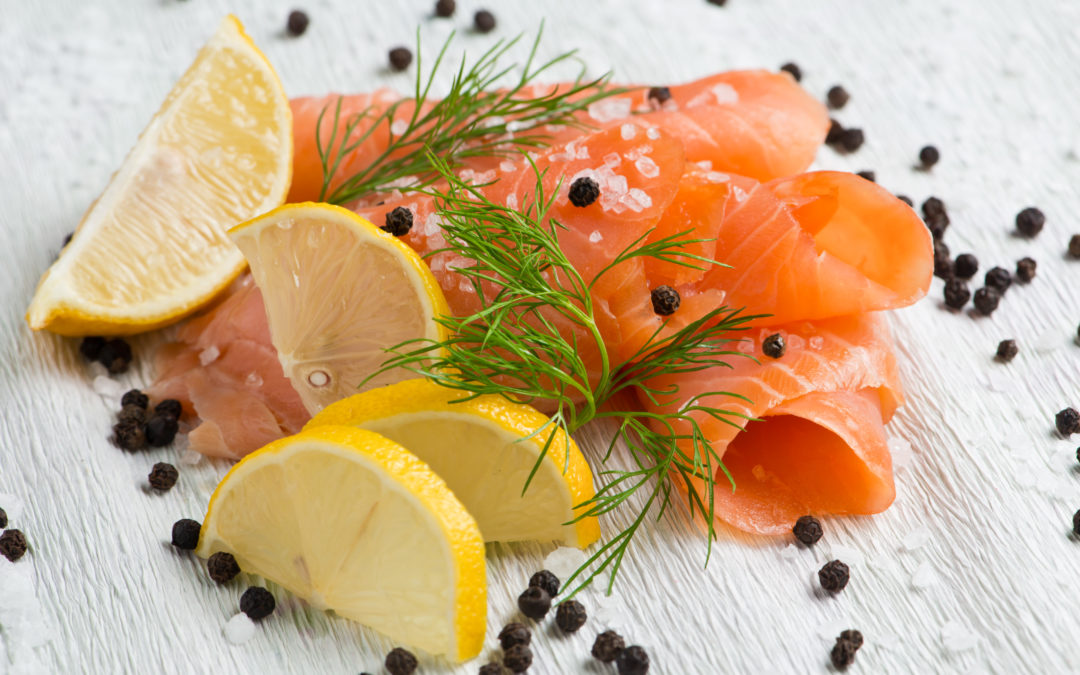Taking care of our health
Omega-3 fatty acids are divided into 3 categories: ALA, EPA and DHA. EPA contributes significantly to the protection of the arteries and the heart; it has a recognized anti-inflammatory and anti-allergic effect. DHA plays a fundamental role in the development of the brain and retina; it also helps in the correct functioning of hormones. ALA is mainly found in products of plant origin such as rapeseed oil or flaxseed.
All seafood products, whether fish or shellfish, contain many benefits and the list of products we mention below is not exhaustive.
Fish and Shellfish : Source of essential nutrients

Source of Omega-3 fatty acids
Overall, seafood is the best way to consume EPA and DHA. The fish that are richest in Omega-3 include salmon, tuna, mackerel and pollock. Smaller forage fish species are also a high source of EPA and DHA. This category includes sardines, anchovies, herring, mackerel, capelin and hoki.
Source of Vitamins
Fish is a source of vitamins – mainly vitamin D, which is not naturally present in our bodies, but is nonetheless vital for our health. It boosts our vitality and increases the strength of our immune system as well as our bones and teeth! If you lack Vitamin D, in addition to exposure to the sun, it is possible to make up for your deficiencies with smoked herring from Canada, French trout, Moroccan sardines, Norwegian salmon, mackerel from the Faroe Islands or anchovies from Peru. Cod liver oil, usually from Iceland, also contains Vitamin D in very large quantities.
Source of Trace Elements
Iodine: Mussels from the Atlantic coast, tuna from Mauritius, cod from Norway, crab from Russia, oysters from Canada, whiting from Spain and sardines from Morocco contain iodine, which is very important for brain development and thyroid hormones.
Zinc: It is mainly found in oysters and is vital for our immune defences!
Selenium: Monkfish and whiting have a high selenium content, a molecule that reduces the risk of cardiovascular disease and plays a role in slowing down cellular ageing.
Fluorine: The strength of our skeleton and teeth depends in part on fluorine, which you can find in various shellfish such as crab and shrimp.
Protein Source
Proteins, along with carbohydrates and fats, are macronutrients and contribute to energy intake. Fish is as rich in protein as meat. Tuna, mackerel, salmon and sardines all contain more than 20g of protein per 100g of fish!
Supplement your diet with fish oil
Many countries are below the recommended level of Omega-3 intake due to a low consumption of fish by the population. If you don’t eat much fish, it’s possible to make up for these deficiencies with fish oil supplements. Fish oil is obtained from the biological tissues of fatty fish and has a high content in Omega 3 fatty acids.

Cod liver oil supplements were one of the first Omega-3 dietary supplements available on the market and were originally sold for their Vitamin content rather than for EPA and DHA, but remain a popular source of Omega-3.
How do I test my Omega-3 fatty acid level ?
You can have your omega-3 or fatty acid levels tested to see if your Omega-3 levels are below the recommended levels. Your current blood levels will help your healthcare professional determine the best intake for you.
Click on the links below to see the options in the Omega-3 test kit:
For further information
Follow the Seafoodlovers on our social networks for even more information on our wonders from the Ocean; how to eat them, their benefits and even some recipe ideas!
At Seafoodia, we are committed to offering you quality products that are good for your health and for the planet every day. We are members of GOED (The Global Organization for EPA & DHA Omega-3s) and IFFO (The Marine Ingredients Organization), which keep us up to date with the latest nutrition news & ensure we offer you the best products on the market!



